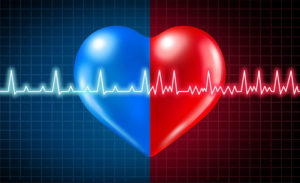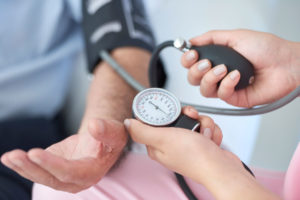Heart disease affects thousands of residents in Wellington each year. This makes prevention strategies essential for maintaining good health. The good news is that lifestyle changes and proper medical care can help with many conditions. Understanding the risk factors and taking proactive steps can improve your cardiovascular health.
This article will explore prevention strategies that Wellington residents can implement right away.
1. Choose Nutrient-Rich Foods
Your food choices will directly impact your heart health. Focus on eating plenty of fruits and vegetables each day.
These foods contain antioxidants that can protect your arteries from damage. Aim for at least five servings of produce daily.
Whole grains provide essential fiber and nutrients your heart needs. Some things to replace are:
- White bread
- Pasta
- White rice
Instead, choose healthier grains, such as:
- Oatmeal
- Quinoa
- Brown rice
2. Select Healthy Protein Sources
Protein supports muscle health, including your heart muscle. Choose protein sources like:
- Fish
- Poultry without skin
- Beans
- Legumes
- Fatty fish, like salmon
Limit red meat consumption to no more than two servings per week. When you do eat red meat, choose lean cuts and keep portion sizes small.
3. Reduce Sodium Intake
Too much sodium raises blood pressure and strains your cardiovascular system. Most Americans tend to consume far more sodium than is healthy.
Read food labels carefully. Aim to choose products with less than 140mg of sodium per serving.
You can also cook meals at home using herbs and spices to reduce the need for salt. This gives you control over sodium content while adding flavor to your food.
4. Start with Regular Walking
Walking provides an excellent foundation for heart health. Begin with 10-minute walks and gradually increase duration and intensity. Try to have these walks every day.
5. Include Strength Training
Muscle-strengthening activities can benefit your entire cardiovascular system. Use resistance bands, weights, or your own body weight for effective workouts. Two days of strength training every week can be a good place to start.
Improving your strength can also improve your metabolism and help you maintain a healthy weight.
6. Find Activities You Enjoy
Exercise becomes easier when you genuinely enjoy the activity. Try different options like swimming, dancing, cycling, or group fitness classes.
Consistency matters more than intensity when you start an exercise routine. Choose activities you can maintain long-term rather than extreme workouts you cannot sustain.
7. Practice Relaxation Techniques
Chronic stress will contribute to heart disease by raising blood pressure and inflammation levels. Learn relaxation methods that work for your lifestyle. Deep breathing exercises take just a few minutes and can be done anywhere.
Meditation and mindfulness practices can help reduce stress hormones in your body. Five minutes of daily practice can provide a lot of benefits.
8. Build Strong Social Connections
Your emotions and social connections also play a part in your heart health. Maintain relationships with family and friends who provide positive emotional support.
Isolation and loneliness increase stress and negatively impact cardiovascular health. Make an effort to connect with others regularly, even if just through phone calls or video chats.
9. Get Adequate Sleep
Poor sleep quality affects your heart in multiple ways. It can lead to high blood pressure, weight gain, and increased stress hormones. Adults need at least seven hours of quality sleep.
Create a consistent bedtime routine and keep your bedroom cool, dark, and quiet. When it is an hour before you go to bed, avoid screens as much as possible.
10. Quit Smoking Completely
Smoking damages blood vessels and significantly increases heart disease risk. The chemicals in cigarettes cause inflammation and make blood more likely to clot.
Quitting smoking benefits your heart immediately. Within 20 minutes of quitting, your heart rate and blood pressure begin to drop. After one year, your risk of heart disease decreases by half compared to continuing smokers.
11. Limit Alcohol Consumption
Having a little alcohol every so often may have some heart benefits. However, excessive drinking will damage the heart muscle.
Women should limit alcohol to one drink per day. Men should have no more than two drinks daily.
Binge drinking is particularly harmful to cardiovascular health. If you choose to drink alcohol, do so in moderation and always with food.
12. Know Your Blood Pressure
High blood pressure often has no symptoms but seriously damages arteries over time. Have your blood pressure checked regularly and know what the numbers mean.
If your blood pressure is elevated, work with healthcare professionals to develop a management plan. Small lifestyle changes can often bring blood pressure into a healthy range.
13. Check Cholesterol Levels
Cholesterol testing shows how much fatty substances circulate in your blood.
High cholesterol levels lead to a buildup of plaque in your blood vessels. Adults should have cholesterol checked every four to six years.
Your healthcare provider can help you interpret results and recommend treatment if needed. Diet and exercise often improve cholesterol levels significantly.
14. Maintain a Healthy Weight
Excess weight makes your heart work harder and increases disease risk. Even modest weight loss provides substantial health benefits. Aim for gradual and sustainable changes; a crash diet might harm your health.
Calculate your body mass index to determine if your weight falls within a healthy range. Combine proper nutrition with regular physical activity for the most effective weight management.
Prevention of Heart Disease in Wellington, FL
Prevention of heart disease in Wellington requires consistent effort, but the rewards are substantial. Start with small changes you can maintain long-term rather than attempting dramatic lifestyle overhauls. Every positive step you take benefits your cardiovascular system.
For expert guidance on heart disease prevention, trust Advanced Medical. Our very own board-certified family nurse practitioner, Shariffa Gunawardene, is here for you. She provides personalized primary care to help you achieve optimal cardiovascular health. Call us at (561) 434-1935 or use our online appointment request form to request a consultation today.
The best family medicine doctor near you looks forward to serving you!










